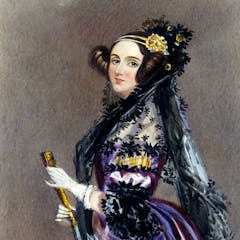
Articles on Women in science
Displaying 1 - 20 of 132 articles

Collecting shells was a common past time in Enlightenment Britain, when elite women were becoming increasingly interested in science.

Studies reveal women’s research receives tougher assessment, less funding, fewer prizes and less citation than men’s.

In the academic world, researchers are rewarded for publishing frequently. Not only is this affecting research quality but it is also hindering female scientists.

Growing awareness of sexual harassment and discrimination in the field prompted an international survey and research into potential solutions.

From primary school to academic positions, despite some progress, gender inequality continues to be rife.

The trailer for ‘Oppenheimer’ fails to include female physicists, which is indicative of a broader media trend that, if reversed, could lead to greater gender diversity in science.

History might give you the impression astronomical discoveries were only done by men. But women were participating in scientific expeditions of eclipses too, even though it wasn’t easy.

Mary Anning, Thomas Bopp and Ben Bacon are just a few of the nonprofessionals who pushed the frontiers of science.

A new book explores a paradox: women have been excluded from Australian science for many social and political reasons, but were also present and active in it from its earliest days.

Lovelace was a prodigious math talent who learned from the giants of her time, but her linguistic and creative abilities were also important in her invention of computer programming.

The U.S. Antarctic Program struggles to keep women safe – and through the continent’s history, discrimination and prejudice are rampant.

Authors writing for Nature journals will also need to separate sex and gender data, so it can’t just be lumped in with other results.

By surveying over 100 people in academic medicine, a researcher found that women are consistently excluded from important networking activities like watching sports, drinking at bars and playing golf.

Discover the stories of five trailblazing women – Tharp, Nice, Tu, Noether and Wu – who worked in STEM during the 20th century.

The proportion of women in a discipline influences how rigorous and trustworthy people rate the field overall, as well as whether they categorize a STEM field as a ‘hard’ or ‘soft’ science.

Many scientists stuck at home during university closures dealt with increased domestic responsibilities. But some groups had it worse than others.

We spoke to 332 Year 3 students about what they want to be when they grow up. Some responses raised alarms.

‘Wives’, volunteers, assistants: the vital contribution of women archaeologists has long been underplayed, if not erased. A new project uncovers trailblazers in the Pacific.

Science fields are improving at being more inclusive. But explicit and implicit barriers still hold women back from advancing in the same numbers as men to the upper reaches of STEM academia.

Excluding, silencing and discouraging so many brilliant minds carries a very heavy cost, not just to the women directly impacted, but to all of humanity.
